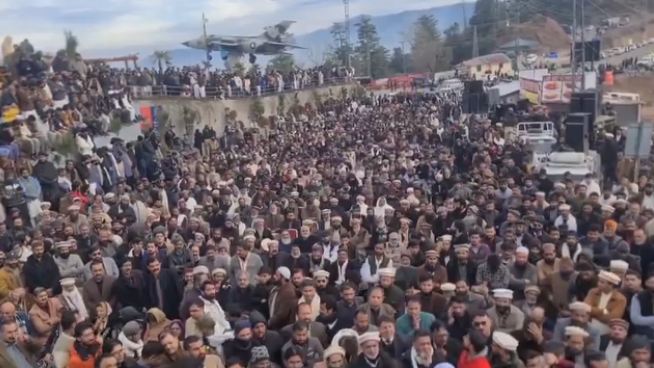
A grand public jirga was held in Murree to protest against the Punjab government’s controversial ‘Murree Development Plan’. The gathering, which took place in the Lower Topa area, saw participation from a range of political parties, business leaders, and local residents. Notable figures, including former Prime Minister Shahid Khaqan Abbasi and former MNA Sadaqat Abbasi, addressed the jirga, voicing strong opposition to the development plan and calling for a complete shutdown of all markets in Murree on December 27.
The jirga brought together political parties such as Pakistan Tehreek-e-Insaf (PTI), Pakistan People’s Party (PPP), Jamaat-e-Islami (JI), and Jamiat Ulema-e-Islam (JUI). However, the Pakistan Muslim League-Nawaz (PML-N) announced a complete boycott of the event. During the protest, markets in key locations, including Mall Road and Jheeka Gali, were shut down in solidarity with the demonstration.
The jirga primarily focused on several contentious issues related to the development plan, including the re-modeling of Jheeka Gali Chowk, Section 4 restrictions on Mall Road, and operations on the Expressway. Despite the protest, the provincial government had imposed Section 144 to prevent any untoward incidents during the event.
Shahid Khaqan Abbasi, addressing the gathering, criticized the Punjab government’s approach, stating, “The Nawaz Sharif I know gives people employment, not take it away. What kind of government is this that demolishes buildings and takes away jobs without consulting the people?” He emphasized that every problem could be solved, but no government could stand against the power of the people.
Abbasi further stated that in his 37 years of political experience, he had never witnessed the imposition of Section 144 in Murree. He urged the government to take the public into confidence before taking any further action in the region and to address their concerns.
The protesters have vowed to continue their opposition until the government revises its development plan and engages with the local community in a more transparent manner. The shutdown on December 27 will mark a significant escalation in the public’s resistance against the proposed development initiatives.





